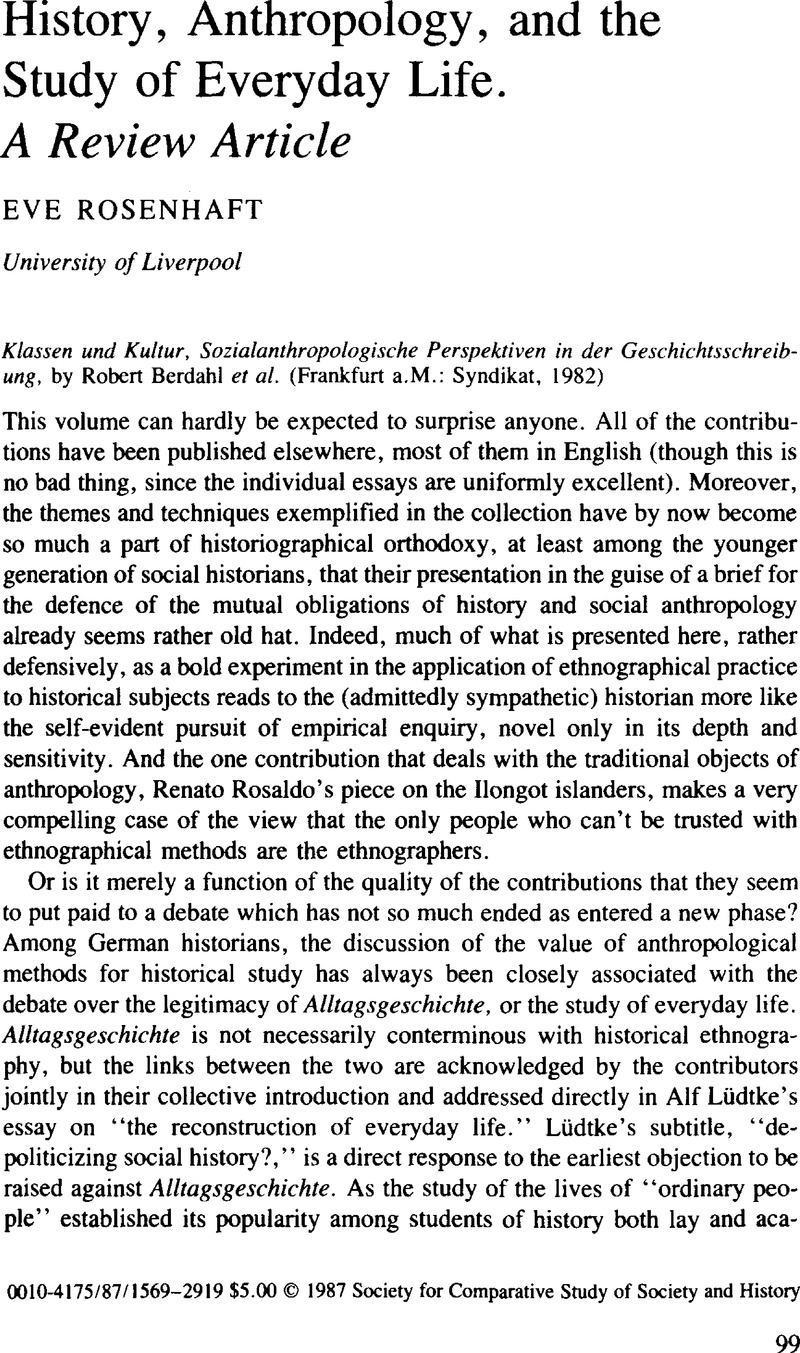Article contents
History, Anthropology, and the Study of Everyday Life. A Review Article
Published online by Cambridge University Press: 03 June 2009
Abstract

- Type
- The Thin Line of Culture
- Information
- Copyright
- Copyright © Society for the Comparative Study of Society and History 1987
References
1 Judt, Tony, “A clown in regal purple: Social history and the historians,” History Workshop Journal 7 (Spring 1979), 66–94CrossRefGoogle Scholar; Eley, Geoff and Nield, Keith, “Why does social history ignore olitics?,” Social History 5 (1980), 249–71CrossRefGoogle Scholar.
2 Most notably, Kater, Michael, “Begrifflichkeit und Historie” [review article], Archiv für Sozialgeschichte XXIII (1983), 688–705Google Scholar. For a more persuasive critique, as part of a new “fin-desiècle” backlash against the 1960s' version of Enlightenment, see Kocka, Jürgen, “Zurück zur Erzählung? Plädoyer f7ür historische Argumentation,” Geschicte und Gesellschaft 10 (1954), 409–20Google Scholar.
3 Goddard, David, “Anthropology: the limits of functional ism,” in Ideology in Social Science, edited by Blackburn, Robin (Glasgow, 1972), 61–75Google Scholar.
4 I am thinking here particularly of the work of the Birmingham Centre for Contemporary Cultural Studies on working-class youth subcultures.
- 6
- Cited by


